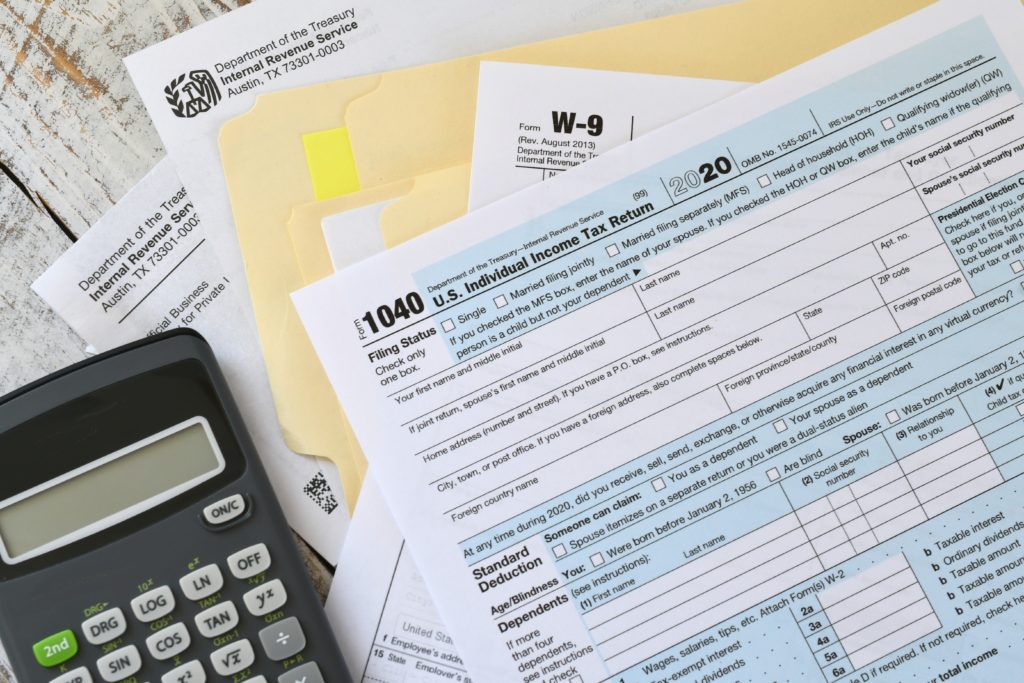Wage Garnishment
Consult Our Tax Advisors for IRS WAGE GARNISHMENT REMOVAL.
Are you facing issues with wage garnishment? Our tax advisors can look into it and craft a plan to help stop wage garnishment.
The IRS has the power to collect 70% of your gross income if you’re W-2 employed. If you are on 1099, IRS can garnish up to 100% of your gross income. In addition, if you’re currently employed and owe back taxes, the IRS can use a wage garnishment to attempt to settle your tax debt.
If you are like most people, have a tough enough time on 100% of their paycheck, let alone 30%, making wage garnishment one of the most frustrating, humiliating, stressful, and financially debilitating experiences to go through. At LFG Tax Help, we understand what you are going through when the IRS garnishes your wages, and it’s our mission to help you turn things around.
We can help get you back in compliance with the IRS with an approved installment plan so you can live your life instead of being stressed out. In addition, we provide tax relief services that can substantially reduce your tax liability, possibly saving you tens of thousands in penalties, interest, and fees tacked on by the IRS. The IRS has numerous options available to help you get back on track. Our passion is helping people in difficult circumstances reduce their tax burden to the smallest dollar amount possible.
We help clients all the time who need to remove a wage garnishment as soon as possible. We work to use the strategy that gets our clients back to living their everyday life quickly. But, you’re not in this alone–we do the challenging work of filling out the correct forms and following up with the IRS until you get the tax relief you’ve been needing. If you’re unsure whether or not you’re entitled to wage garnishment help, there’s a good chance you are, but there’s only one way to know for sure.
Contact us using the form below and get a FREE CONSULTATION with us today to help you get back to normal.
FAQ
Can you settle a wage garnishment?
One thing to keep in mind about the IRS and wage garnishments is that it’s not in their best interest to resort to these collection methods. The costs of collecting tax debt this way are high, requiring valuable resources that aren’t always desirable to the IRS from a financial standpoint.
Because of this reality, the IRS is often willing to negotiate. To begin the negotiation process, it’s crucial to make sure you’re compliant by filing any unfiled tax returns. But there’s far more to getting garnishment relief fast. Working with a professional firm like Alleviate will greatly improve your chances of fast results, since we’re experts and know exactly what to do, and accurately.
For most people, the first option for settling an IRS wage garnishment is requesting an installment agreement. It’s important to keep in mind, though, that if you work out a payment plan agreement, you absolutely must pay on time, every time. You only get one shot, and failing to keep your end of the deal almost guarantees the IRS will resort to more severe collection methods like bank levies and property seizures.
Another option that some may qualify for is the “Offer in Compromise.” If you qualify, you can submit an offer for a lesser amount than your total tax debt. In some cases, particularly when the amount is greater than legal action might collect successfully, the IRS does accept tax settlement negotiations. Alleviate Tax can help you determine your eligibility for an offer in compromise.
A possible last resort is the Hardship Tax Relief Petition. The advice and guidance of a well-qualified tax professional will ensure you draft and present the “currently non-collectible” proposal correctly. Alleviate Tax prides itself on its expertise in helping people like you get the maximum eligible assistance so you can move on with your life.
How do you calculate a garnishment amount?
It’s not uncommon for the IRS to garnish as much as 70% of a taxpayer’s wages. This is done with the intention of encouraging taxpayers to contact the IRS about their tax debt.
There is a calculation for what wages are exempt from garnishment. This calculation primarily takes the taxpayer’s filing status and their number of dependents into consideration. For example, a taxpayer who files as single with no exemptions and has a weekly pay schedule only has $182.69 exempt from being garnished on their weekly paycheck. Another example is someone jointly filing as married with two dependents, which would result in $730.77 being exempt from each paycheck if paid bi-weekly.
Can an IRS wage garnishment be lowered?
If garnishment is creating a financial hardship for you and your family, you do have the right to request your evidence of hardship be reviewed. Help from an experienced tax professional like the analysts here at Alleviate Tax makes the whole process a lot easier.
We’ll go to bat to get you approved for the best wage garnishment relief program possible. We help folks like you who are experiencing financial hardships such as:
- Job loss
- Significant reduction in work hours
- Drastic pay cuts
- Bankruptcy filing
- Injury or illness
- Inability to meet basic needs like rent, groceries, and utilities


